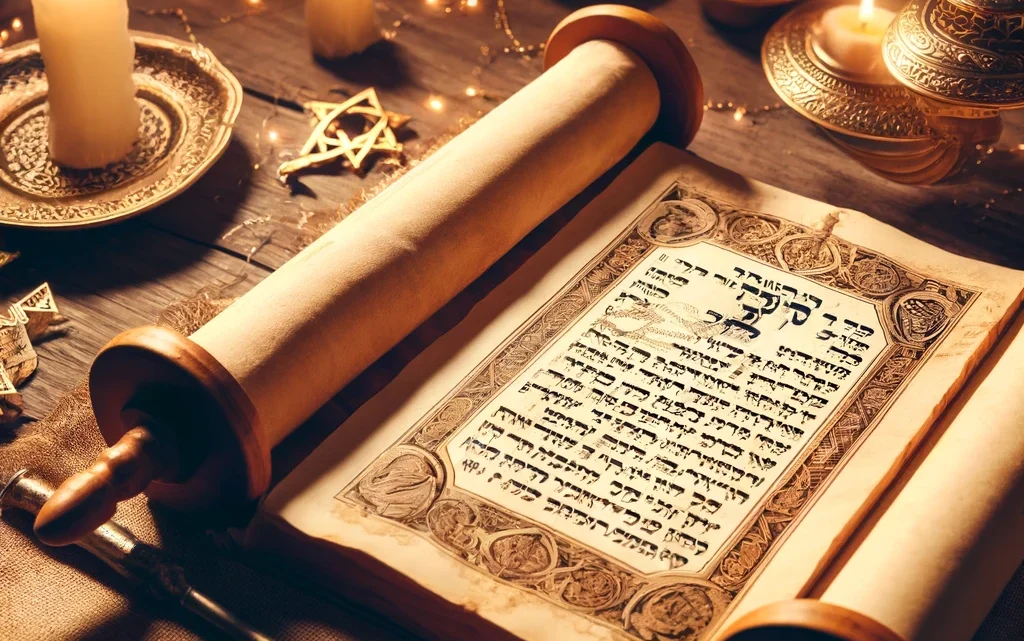The Role of the Torah in the Life of a Believer


Introduction
The Torah, often referred to as the Law of Moses, is the foundation of the Hebrew Scriptures and central to the faith and practice of the Hebrew Roots Movement. For believers, understanding and following the Torah is essential to living a life that is pleasing to Yehovah. This post will explore the significance of the Torah, its relevance today, and how it can be practically applied in daily life.
What is the Torah?
The Torah consists of the first five books of the Bible: Genesis, Exodus, Leviticus, Numbers, and Deuteronomy. It contains the laws, commandments, and teachings given by Yehovah to Moses on Mount Sinai. These books outline the moral, civil, and ceremonial laws that were intended to guide the Israelites in their relationship with Yehovah and with each other.
Historical Context and Relevance Today
Historically, the Torah was the constitution of the ancient Israelite nation. It provided a comprehensive framework for worship, social justice, and ethical behavior. Today, many believers in the Hebrew Roots Movement see the Torah as still relevant and binding. They believe that Yeshua did not come to abolish the Torah but to fulfill it (Matthew 5:17-19), and that its principles remain applicable for guiding righteous living.
Misconceptions About the Torah
There are several misconceptions about the Torah that can lead to misunderstandings among believers and non-believers alike:
- Legalism: Many assume that following the Torah means adhering to a strict set of rules devoid of grace. However, the Torah is seen as a gift that teaches believers how to live in harmony with Yehovah’s will (Psalm 19:7-11).
- Irrelevance: Some believe the Torah is obsolete in the New Covenant. Yet, the Torah’s moral and ethical teachings are timeless and continue to inform a believer’s life (2 Timothy 3:16-17).
- Burden: Observing the Torah is often perceived as burdensome, but many find joy and freedom in following Yehovah’s commandments (Psalm 119:97-104).
Practical Application in Daily Life
Applying the Torah in modern life involves more than just ritual observance; it’s about embodying its principles in daily actions:
- Sabbath Observance: Setting aside the seventh day as a day of rest and worship, reflecting on Yehovah’s creation and deliverance (Exodus 20:8-11).
- Dietary Laws: Following kosher dietary laws as outlined in Leviticus, which promote health and holiness (Leviticus 11).
- Festivals: Celebrating biblical feasts, which commemorate significant events in Yehovah’s plan and provide opportunities for communal worship and fellowship (Leviticus 23).
- Ethical Living: Emphasizing justice, kindness, and humility in interactions with others, as prescribed in the Torah (Micah 6:8).
Scriptural Support for the Importance of the Torah
- Psalm 1:1-2: “Blessed is the man who walks not in the counsel of the wicked, nor stands in the way of sinners, nor sits in the seat of scoffers; but his delight is in the law of Yehovah, and on his law he meditates day and night.”
- Psalm 119:105: “Your word is a lamp to my feet and a light to my path.”
- Deuteronomy 6:4-9: “Hear, O Israel: Yehovah our God, Yehovah is one. You shall love Yehovah your God with all your heart and with all your soul and with all your might. And these words that I command you today shall be on your heart. You shall teach them diligently to your children, and shall talk of them when you sit in your house, and when you walk by the way, and when you lie down, and when you rise. You shall bind them as a sign on your hand, and they shall be as frontlets between your eyes. You shall write them on the doorposts of your house and on your gates.”
- Joshua 1:8: “This Book of the Law shall not depart from your mouth, but you shall meditate on it day and night, so that you may be careful to do according to all that is written in it. For then you will make your way prosperous, and then you will have good success.”
Conclusion
The Torah remains a vital part of a believer’s life, providing timeless wisdom and guidance. Embracing its teachings can lead to a deeper, more meaningful relationship with Yehovah and a more righteous, fulfilling life. By understanding and applying the Torah, believers can align their lives with Yehovah’s will and experience the blessings of walking in His ways.
References
- Scriptures: Genesis, Exodus, Leviticus, Numbers, Deuteronomy
- Commentaries and writings from Hebrew Roots Movement scholars and teachers

